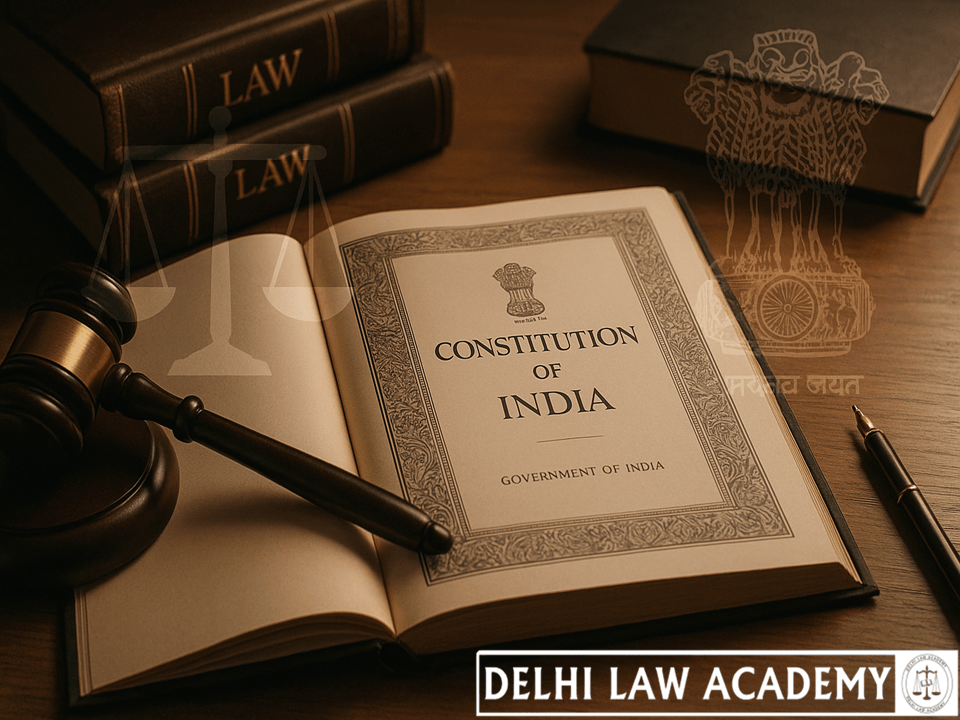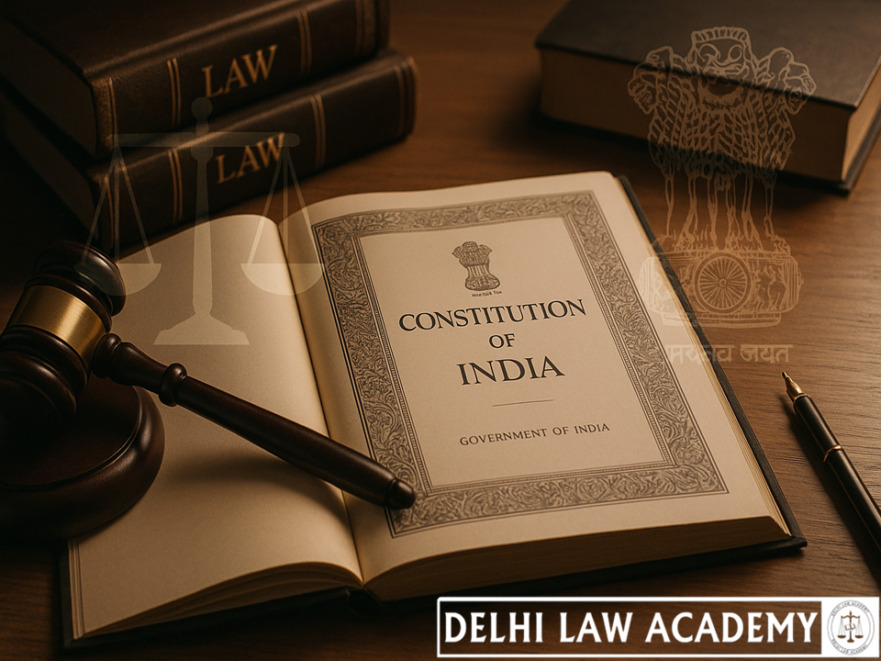
📘 DISTRIBUTION OF REVENUES BETWEEN UNION AND STATES
Articles 268 – 276
• All taxes and duties in the Union List except ……….shall be levied and collected by Govt. of India and distributed between Union and States.
• A percentage of net proceeds of such tax or duty …… shall be assigned to States within which that tax or duty is leviable.
Delhi Law Academy Jaipur presents below for aspirants of RJS, DJS, PCS (J) and other Judicial Services throughout India a simplified Note on the Constitutional provisions relating to distribution of revenues between union and states.
📜 Constitutional Provisions
Article 268
- Stamp duties mentioned in Union List
- shall be levied by Govt of India
- but shall be collected by States
- Proceeds of such duty leviable in a State
- shall not form part of CFI
- but shall be assigned to that State
Article 268A* — Service Tax
- Taxes on services
- shall be levied by Govt of India
- Such tax shall be collected and appropriated
- by Govt of India and Govts of States
- in accordance with principles formulated by Parliament by law
*Article 268A has been deleted by the 101st Amendment Act 2016
Article 269 — Tax on inter-state trade and commerce
- Tax on sale and purchase of goods (other than newspapers)
- Where such sale or purchase takes place in course of inter-state trade or commerce
- Shall be levied and collected by Govt of India
- Such tax shall be assigned to States within which that tax is leviable
- It shall be distributed among those States as per principles formulated by Parliament
Article 269A*
- GST on inter-State supplies shall be levied & collected by Govt of India
- Tax shall be apportioned between Union & States as per law recommended by GST Council
- Imports deemed as inter-State supply
- Amounts cross-utilised for payment of other GST components do not form part of CFI / State Fund
- Parliament to formulate place-of-supply rules
*Inserted by 101st Amendment Act 2016
Article 270
- All taxes in Union List except
- Articles 268, 269, 269A
- Surcharge under Article 271
- Any specific-purpose cess
- Shall be levied & collected by Govt of India and distributed between Union & States
- Percentage of net proceeds assigned to States as per Finance Commission
Article 270(1A)*
Tax collected under Article 246A(1) shall also be distributed between Union & States.
Article 270(1B)*
Amounts collected/adjusted under inter-State GST provisions also to be distributed between Union & States.
Article 271 — Surcharge
- Parliament may increase taxes under Arts. 269 & 270 by a surcharge
- Proceeds shall form part of CFI
- Cannot be applied on GST under Article 246A
Article 275 — Grants from Union to States
- Parliament may provide grants-in-aid from CFI for States needing assistance
- Different sums may be fixed for different States
Article 276 — Taxes on professions
- States may levy taxes on professions, trades, employment
- Cannot exceed ₹2500 per person per year
- Not invalid merely because it touches income
📘 Stay Ahead with Delhi Law Academy!
Get access to free monthly current affairs, read our insightful blogs,
and explore free study resources prepared by experts at DLA Jaipur. 🚀
Frequently Asked Questions (FAQs)
Contact us
📍 Delhi Law Academy – Jaipur Branch
6C, Tower 2, Coaching Hub, Pratap Nagar, Jaipur – 302033
📞 Phone:
+91 9911916552
+91 8447285606
✉️ Email:
contactus@delhilawacademy.com

